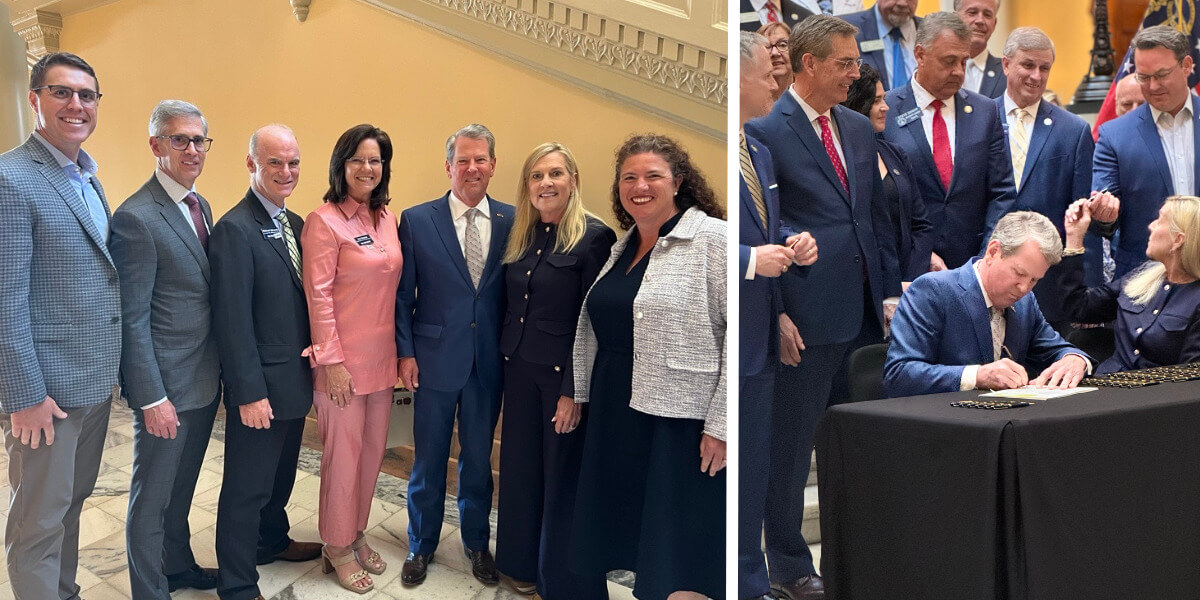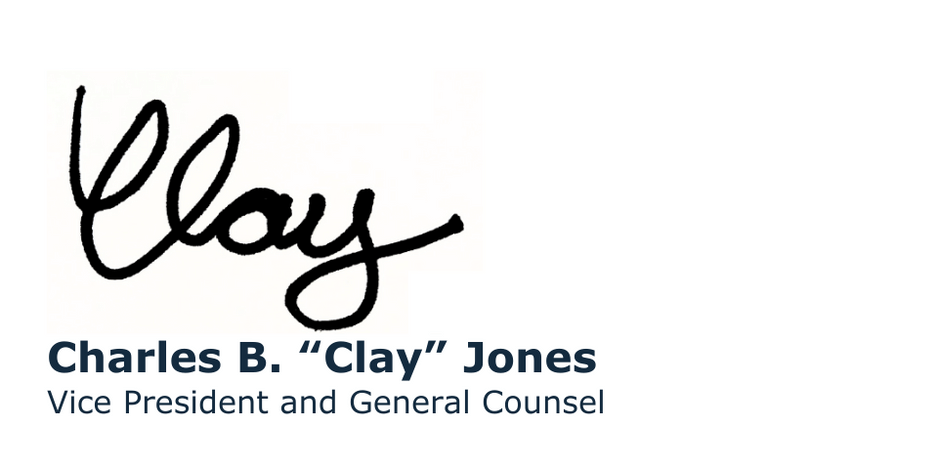Governor Kemp Signs Tort Reform Package

On Monday, April 21, Governor Brian Kemp signed into law Senate Bill 68 and Senate Bill 69. This new legislation will try to restore balance and sanity to Georgia’s civil justice system.
GAM President Lloyd Avram, GAM Vice President of Government Affairs Brittney Hull, GAM Board Chair Michael Edwards of Mannington Mills, GAM Board Member Dee Barnes of Evans Tool & Die, and GAM members Ashley Groome of Johnson and Johnson, and Chris DiCarlo of Lockton joined Governor Kemp to commemorate this tremendous success. The legislation was championed by Lt. Governor Burt Jones, and Speaker Jon Burns, as well as Senator John Kennedy and Representative James Burchett, who carried the bills.
First and foremost, we want to thank our members. Those of you who traveled to the Capitol played an instrumental role in supporting tort reform in the 2025 Session. The legislation passed after more than a decade of previous attempts by the business community had been stymied by trial lawyers and a challenging political climate. Brittney Hull led the way, coordinating with the Governor’s office, friendly senators and representatives, allied business groups and our members to make GAM’s voice heard throughout the halls of the Capitol. GAM members made direct, personal appeals to our political leaders by delivering their messages in person, as well as by phone and email. GAM Chairman Michael Edwards spoke at a press event organized by GAM at the Capitol and effectively communicated that NOW was the time for tort reform.
Senate Bill 68 addresses inequities in the current Georgia civil justice system that led to nuclear verdicts, frivolous lawsuits, increased insurance rates and – sadly -- Georgia’s infamous ranking as one of the worst “judicial hellholes” in the country. The bills provide for a number of common sense improvements including:
(1) Curbing “phantom damage” medical awards;
(2) Limiting “anchoring” – the practice of suggesting arbitrary or inflated amounts for non-economic damages to juries;
(3) Allowing evidence regarding seat belt usage to be considered (current Georgia law prohibits it);
(4) Reforming premises liability standards for negligent security claims;
(5) Establishing bifurcated trials where the issues of liability and damages are separately considered;
(6) Preventing double recovery of attorneys’ fees;
(7) Streamlining rules related to motions to dismiss, helping weed out frivolous lawsuits; and
(8) Stopping plaintiffs from voluntarily dismissing their cases (with full rights to re-file) late in the process.
Senate Bill 69 addresses third-party litigation financing. In recent years, the practice of third parties financing litigation has rapidly expanded with many financiers – including hedge funds and private equity firms -- interested only in a return on their investment rather than justice. The bill includes a number of provisions designed to ensure transparency and fairness, including:
(1) Prohibiting third-party litigation financing unless the financier registers with the Georgia Department of Banking and Finance;
(2) Stopping foreign adversaries bent on crippling American industries from financing litigation in Georgia;
(3) Prohibiting third-party financiers from directing legal counsel or plaintiffs regarding the strategy and substance of the case;
(4) Providing for significant penalties for third-party financiers when a court orders penalties for frivolous litigation;
(5) Ensuring consumer protections and disclosures for plaintiffs who may enter into third-party financing agreements; and
(6) Allowing discovery of litigation financing agreements in legal proceedings, making sure parties and the court are aware of any undue influence or conflicts of interest.
These bills, taken together, are designed to restore balance to our civil justice system, reduce frivolous lawsuits and nuclear verdicts and put downward pressure on insurance rates that have been a significant burden for Georgia businesses of all sizes. GAM and its members should be proud of our efforts, which have been specifically recognized and appreciated by the political leaders of our state as critical to achieving passage of the bills.
Again, thank you for all you have done and for the privilege of representing your interests every day.


